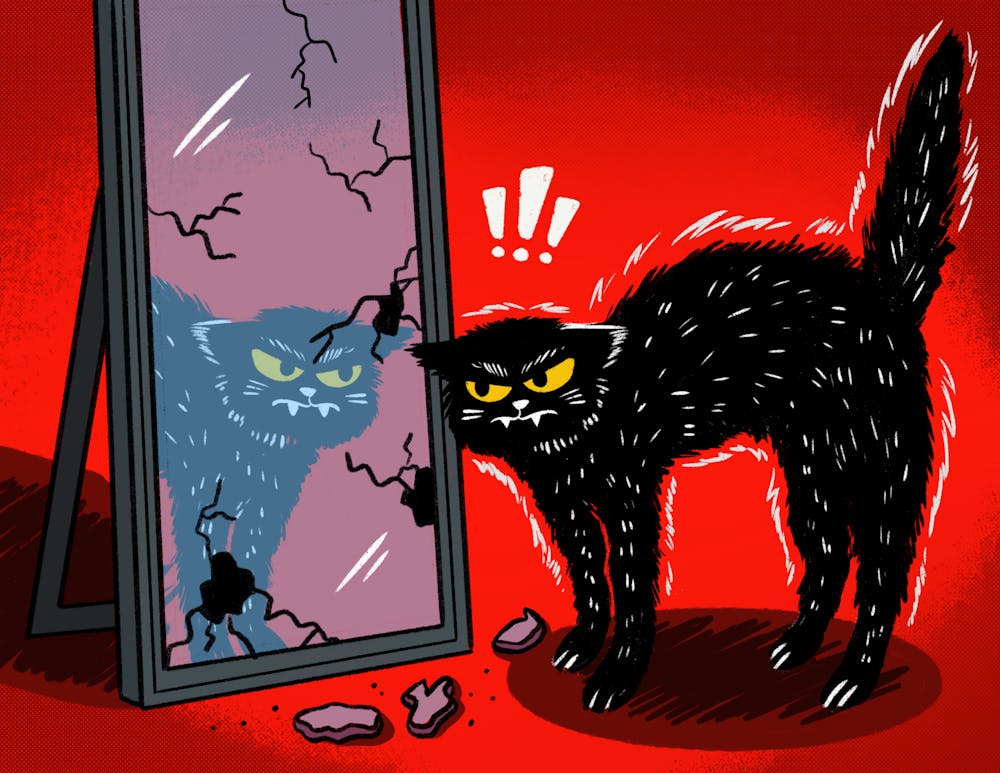Breaking a mirror is an inconvenience with a bothersome cleanup, Friday the 13th is an annoying date for an exam with the weekend so close and opening an umbrella inside just does not make sense.
At least that would be the case in a world without superstition. All around the world, people see seemingly random actions or situations as a sign of bad or good luck that sometimes dictate not only perception, but also reaction when encountered.
Sept. 13 is known as Defy Superstition Day, a great opportunity for anyone spooked out to finally face that black cat or leave that rabbit foot in their pocket at home.
However, Halloween is right around the corner and the air in Athens is thick with spooky myths and superstitions.
Famously haunted, The Ridges and Wilson Hall still convince a great number of Ohio University students to believe in the supernatural. Not only the belief in ghosts but also traditional superstition hold up in the modern age.
Superstition means something different to everyone. To some, it’s about signs they encounter in their day, and to others it’s a habit and to others just have that feeling of paranoia about certain things.
“I would define it as doing something that goes above and beyond what, strictly speaking, seems necessary to get something done … to deal with fears or things unseen,” Theo Peck-Suzuki, a master's student studying journalism, said.
However, some triggers of superstition are very much visible and can be prevented by taking action: “I definitely go out of my way to avoid walking under ladders,” Samatha Thai, a medical student, said.
Just like a four-leaf clover is supposed to bring good luck, superstition doesn’t have to be scary. To Ellie Dale, a sophomore studying psychology, it is a means to an end.
“I ran cross country, so I would always eat the same breakfast because it would make me run the same,” Dale said.
Breaking that habit, to her, consequently means a worse performance in the race.
This is not the only habit considered superstitious. Cortney Smith, a freshman in the pre-nursing program, finds superstition in sports through socks.
“The socks that I would wear would have right and left on them,” Smith said. “If I had switched them, I would keep them switched for the next game if we won.”
What seems perfectly normal to some may be something of superstition to others. Not very spooky on their own, numbers and food carry especially heavy symbolic meaning. Peck-Suzuki said in many East Asian countries, the number four means bad luck and is avoided even more strictly than the number 13 across the pond.
“You'll never see things that are sold in fours,” Peck-Suzuki said. “If you're serving yourself food or you're picking dumplings up out of a thing, you wouldn't take four, you’d take five or you’d take three.”
Even though grounded in ancient tradition, language or other long-established systems, OU students still stick to their superstition.
“I don't like putting the number four on things,” Thai said.
Superstition can go all the way into cultural etiquette.
“You never—when you're eating with chopsticks—stab your chopsticks directly into the thing that you're eating because that's what you do with food that you offer to ancestors on the little Buddhist shrine,” Peck-Suzuki said, who avoids bad luck by complying to that rule. “It’s considered bad luck to do that, so all you people who don’t know how to use chopsticks, get it together.”
Superstitions are all around us. Whether one prefers to stay on the safe side or to be a daredevil, Halloween season is the perfect time to face those spooky beliefs and find out if there’s actually something behind them.





